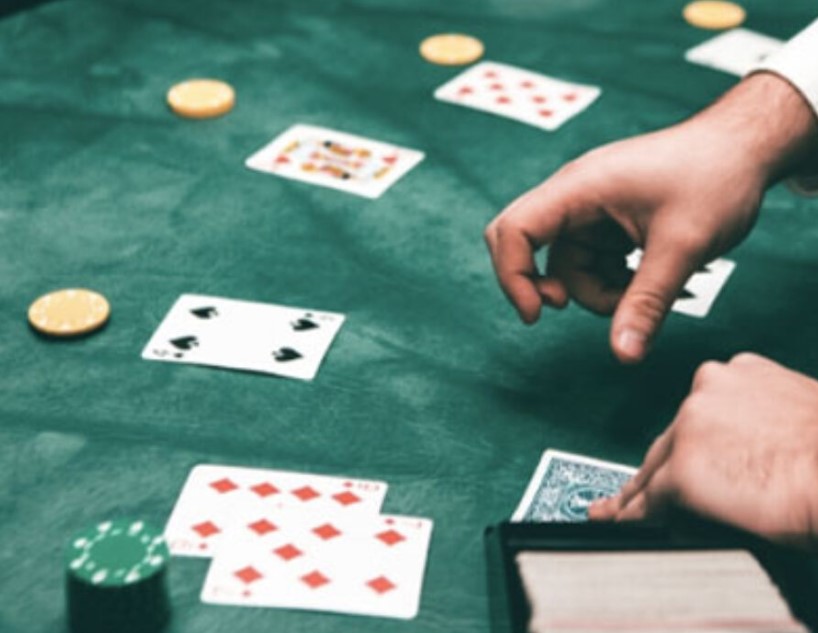Online 사설홀덤사이트 has become a global phenomenon, with countless players engaging in this thrilling game from the comfort of their homes. The accessibility and convenience of online play can lead to extended sessions and increased frequency of gameplay. However, this can sometimes result in burnout, negatively impacting both your performance and overall well-being. This article delves into effective strategies for avoiding burnout, ensuring you stay sharp, motivated, and healthy while enjoying the game you love.
Understanding Burnout in Online Hold’em
Burnout is a state of emotional, physical, and mental exhaustion caused by prolonged and excessive stress. In the context of online Hold’em, it can manifest as a lack of motivation, irritability, and a decrease in performance. Players might feel overwhelmed by the demands of the game, leading to a decline in their overall enjoyment and effectiveness at the tables.
Signs of Burnout
- Decreased Performance: You might notice a drop in your win rate or a consistent string of bad beats.
- Fatigue: Feeling physically or mentally drained even after relatively short sessions.
- Irritability: Becoming easily frustrated or upset during games, which can affect decision-making.
- Loss of Interest: A sudden disinterest in playing or a lack of enthusiasm for the game.
- Neglecting Other Responsibilities: Prioritizing poker over personal relationships, work, or other essential activities.
Strategies to Prevent Burnout
1. Set Clear Goals
Having well-defined goals can help maintain focus and provide motivation. These goals could be related to improving specific aspects of your game, achieving a certain win rate, or reaching a particular milestone in your bankroll. Setting goals allows you to track your progress and stay engaged with the game without feeling overwhelmed.
2. Create a Balanced Schedule
A well-structured schedule is crucial for avoiding burnout. Allocate specific times for poker sessions, ensuring that you also incorporate breaks and time for other activities. Consider implementing a routine that includes:
- Session Limits: Set a maximum number of hours you will play in a single day or week.
- Breaks: Take regular breaks during sessions to rest and recharge.
- Non-Poker Activities: Engage in hobbies, exercise, or social activities to balance your life outside of poker.
3. Practice Mindfulness and Stress Management
Mindfulness techniques can help manage stress and maintain mental clarity. Incorporate practices such as:
- Meditation: Spend a few minutes each day meditating to calm your mind and reduce anxiety.
- Deep Breathing Exercises: Use deep breathing to manage stress during intense sessions.
- Journaling: Keep a journal to reflect on your experiences, emotions, and any issues that arise.
4. Maintain Physical Health
Physical well-being is closely linked to mental performance. Ensure you maintain a healthy lifestyle by:
- Regular Exercise: Engage in physical activities to boost your energy levels and overall mood.
- Healthy Eating: Consume a balanced diet to fuel your brain and body.
- Adequate Sleep: Ensure you get enough restful sleep to avoid fatigue and improve cognitive function.
5. Avoid Tilt and Emotional Play
Tilt, or emotional play, can lead to poor decision-making and exacerbate feelings of burnout. To combat tilt:
- Recognize Triggers: Identify what causes you to go on tilt, such as bad beats or losing streaks.
- Implement Strategies: Develop strategies to cope with tilt, such as taking a break or focusing on positive outcomes.
- Stay Objective: Remind yourself that losses are a part of the game and focus on making the best decisions possible.
6. Analyze and Reflect on Your Game
Regularly reviewing your play can help identify areas for improvement and keep you engaged. Utilize tools such as:
- Hand Histories: Review past hands to learn from mistakes and refine your strategy.
- Session Reviews: Analyze entire sessions to assess your performance and decision-making.
- Coaching: Consider working with a poker coach to gain new insights and strategies.
7. Engage in Social and Recreational Activities
Social interactions and recreational activities can provide a healthy balance to your poker routine. Engage in activities such as:
- Socializing: Spend time with friends and family to maintain a healthy social life.
- Hobbies: Pursue interests and hobbies outside of poker to keep your mind fresh.
- Travel: If possible, take trips to relax and experience new environments.
8. Set Realistic Expectations
Setting realistic expectations for yourself can help manage stress and avoid burnout. Understand that poker is a game of variance, and fluctuations in results are normal. Aim for incremental improvements rather than immediate, dramatic changes.
9. Manage Your Bankroll Wisely
Proper bankroll management is essential for long-term success and avoiding unnecessary stress. Adhere to the following principles:
- Bankroll Limits: Only play with money you can afford to lose.
- Risk Management: Avoid taking unnecessary risks that could impact your financial stability.
- Proper Stakes: Play at stakes that match your bankroll and skill level to reduce financial pressure.
10. Seek Support and Community
Being part of a poker community can provide valuable support and camaraderie. Engage with other players through:
- Forums and Social Media: Participate in poker forums and social media groups to share experiences and advice.
- Local Poker Groups: Join local poker clubs or groups to connect with other players in person.
- Online Communities: Engage in online poker communities for tips, support, and encouragement.
Conclusion
Avoiding burnout when playing 사설홀덤사이트 requires a multifaceted approach that combines effective time management, self-care, and emotional regulation. By setting clear goals, maintaining a balanced schedule, practicing mindfulness, and focusing on both physical and mental health, you can enhance your overall poker experience and sustain long-term success. Remember, poker is meant to be enjoyable and rewarding, so prioritize your well-being to keep the game fun and fulfilling.

